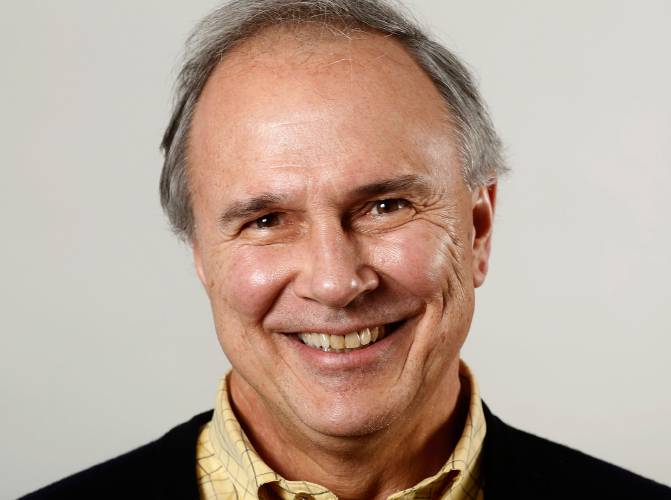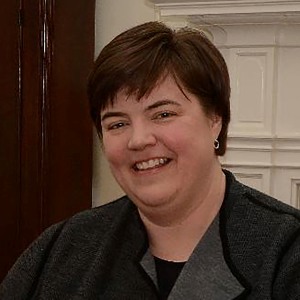Kenyon: Parker up for parole after 23 years in prison

Jim Kenyon. Copyright (c) Valley News. May not be reprinted or used online without permission. Send requests to permission@vnews.com.
|
Published: 04-05-2024 6:00 PM
Modified: 04-08-2024 12:41 PM |
In less than two weeks, Jim Parker should know whether the state of New Hampshire agrees that after 23 years of incarceration he’s earned the right to re-enter society.
Parker’s hearing before the state Adult Parole Board is scheduled for April 18 at the New Hampshire State Prison in Concord.
In “99% of cases, the board makes the decision that day,” said Jay Mackey, the parole board’s director of operations, when I talked with him Tuesday.
If parole is granted, Parker could be out soon — his minimum release date is May 22.
Parker, who turns 40 next month, was sentenced to 25 years to life for his role in the 2001 stabbing deaths of Dartmouth professors Half and Susanne Zantop at their Etna home.
Parker “remains deeply sorry for his actions,” Cathy Green, his Concord attorney, responded via email to my request for comment this week. “He has spent his time in prison very constructively with dedication not only to his own rehabilitation, but to making it a better place for others. Out of respect for the Zantops’ family and friends, he will have no further comment.”
Parker and his friend Robert Tulloch were responsible for one of the most brutal crimes the Upper Valley has seen. On a Saturday morning in January 2001, the Chelsea teenagers knocked on the Zantops’ front door, pretending to be conducting an environmental survey for school.
It was a ruse. Tulloch, president of his high school class, came up “with the idea of jumping people and killing them” to steal their bank cards, Assistant Attorney General Kelly Ayotte said in 2002.
Article continues after...
Yesterday's Most Read Articles
The teens, bored with life in small-town, rural Vermont, planned to use the money to escape to Australia, said Ayotte, who later became a U.S. senator and is now running for governor. They made it as far as a truck stop in Indiana, where police arrested them 24 days after the double homicide.
Parker, who was 16 when he committed the crime, pleaded guilty in April 2002 to second-degree murder for the death of Susanne Zantop, 55. As part of his plea deal, Parker agreed to testify against Tulloch, who prosecutors said was the instigator.
But there wasn’t a trial. Tulloch, who was 17 at the time, pleaded guilty to first-degree murder for the killing of Half Zantop, 66. Tulloch is serving life in prison without the possibility of parole.
By my math, Parker’s minimum sentence of 25 years would potentially have him out in 2027. I contacted the Department of Corrections to clarify why he’s eligible for parole now, but didn’t hear back. Presumably, he’s getting credit for so-called good time.
Accompanied by Green, Parker will make his case to the Parole Board that he’s fit to return to the outside world. (I’ve written in the past about Parker earning a master’s degree while behind bars, along with his leadership role in art, theater and music projects at the state prison.)
Under Parole Board rules, victims’ family members are afforded time to speak. I was unable to reach the Zantops’ daughters, Veronika and Mariana, who both live in Seattle, to ask whether they’ll attend. It’s possible that they and others have written to the Parole Board, but the letters are exempt from the state’s right-to-know law, Mackey said.
I reached out to friends of the Zantops this week, but no one wanted to talk on the record about Parker’s potential release.
In 2019, forensic psychologist Robert Kinscherff evaluated Parker for his risk of future criminal behavior and determined: “Jim scores at the very low end for risk of violent behavior and re-offending,” a court filing at the time showed.
More than a year ago, Parker was taken out of the state prison in Concord. When I checked on his whereabouts in January 2023, a Department of Corrections spokesperson told me he had been transferred to the Transitional Work Center in Concord.
The minimum security center is where incarcerated men nearing the end of lengthy sentences are “reintroduced into the community through supervised educational training (building trades), work opportunities, and job-shadowing,” according to the DOC’s website.
If Parker’s parole is granted, where he lives and works likely will be conditions of his release.
■
The Trump wing of the Windsor County Republican Committee has dropped its lawsuit that asked a state judge to play referee and decide who’s in charge of the political organization.
The civil suit, filed in Vermont Superior Court on March 8, failed to gain traction. At a March 14 hearing, Judge H. Dickson Corbett, denied the five plaintiffs’ motion for a restraining order to block then-Chairman John MacGovern, of Windsor, from calling a countywide GOP meeting.
MacGovern testified at the court hearing that he had no interest in continuing as chairman, making the lawsuit moot. Two of the plaintiffs, Lynn Baldwin, of Ludlow, and August Murray, of Weathersfield, were elected chair and vice chair, respectively, in a voice vote at a March 16 meeting.
Still, the Trump camp waited until March 25 before dropping the suit, which was also brought against Vermont GOP Chairman Paul Dame, a MacGovern supporter.
The suit was “fundamentally about the rights of an organization to choose its leadership…,” Murray wrote in email when I asked for comment. “We feel we were successful in shining a light on the matter to ensure a fair election process.”
MacGovern told me he’s now meeting with “common-sense, traditional Republicans,” to gauge the interest in fielding Windsor County candidates for the GOP primary that aren’t part of the Trump “crowd.”
Jim Kenyon can be reached at jkenyon@vnews.com.

 Lebanon moves forward with plans for employee housing
Lebanon moves forward with plans for employee housing Howard Dean weighs (another) run for governor
Howard Dean weighs (another) run for governor Colby-Sawyer president announces plan to depart
Colby-Sawyer president announces plan to depart
